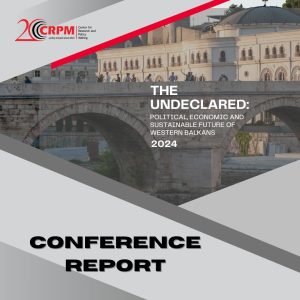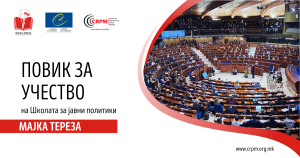The objective is to analyse relevant domestic and international legislation in the area of corruption and gender equality/ gender based violence and propose legal provision for regulation of gender forms of corruption in the national legislation. The aim is to provide legal, institutional and organizational framework for reducing the impact of gender forms of corruption on women.
The research is conducted in 4 phases:
- Review of all the relevant research and literature on the topic of gender and corruption. In order to examine the regulation of corruption with focus on the gender forms analyse is made on: (I) relevant legislation from the international context pertaining to corruption with a focus on gender forms of corruption – international conventions and initiatives and (II) national legislation regulating corruption as well as relevant domestic and international legislation pertaining to gender equality and gender-based violence.
- Research and compile of the legal provisions from other countries regulating/criminalizing sexual extortion/sextortion and other gender forms of corruption. Critical assessment of the information collected in order to identify strengths and weaknesses of the laws aimed at regulating forms of gender corruption. The analysis showcases the best practices and will serve as guide for the regulation of gender forms of corruption in the national legislation.
- Interviews with relevant stakeholders in the country in order to examine the perceptions and awareness level on gender forms of corruption, from state institutions, civil organisations and legal advisors.
- Production of analysis report containing recommendations for concrete legal provisions on regulating gender forms of corruption in the national legislation
Research questions:
- How are gender forms of corruption regulated in the international context?
- How are, if so, gender forms of corruption regulated in the national legislation?
- Are gender forms of corruption recognized as forms of gender based violence in international and domestic legislation?
- Are there countries that have regulated sexual extortion/sextortion in the national laws? What are the best legal practices pertaining to corruption with a focus on gender forms of corruption?
- What are the relevant stakeholders in the country? What are their perceptions and level of awareness pertaining gender forms of corruption and its impact on gender equality?
- Are gender forms of corruption recognized as forms of gender based violence in international and national legislation? What are the obstacles and challenges for the regulation of gender forms of corruption?





